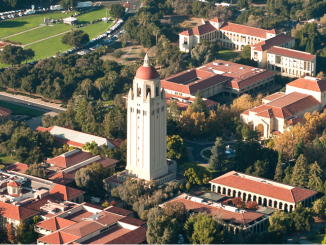
OPINION
BY DAVE PRICE
Daily Post Editor
The Palo Alto school board has decided to spend $100,000 in taxpayer dollars to ask voters this November if they’d like impose term limits on the board so that no trustee could serve more than two terms or eight years.
I hope voters realize there’s two sides to this question.
School board member Todd Collins says term limits would lead to turnover on the board and make it easier for newcomers to win school board seats.
He’s right, but there’s more to the story.
Do-it-yourself term limits
First, voters can impose term limits anytime they want by simply not re-electing an incumbent. No law is necessary. Voters can just decide that two terms is enough and never vote for anyone seeking a third term.
Voters had that opportunity in 2012 when Camille Townsend ran for a third term. There were those in the community who said they wouldn’t support her because she had violated some mysterious unwritten rule saying school board members shouldn’t serve three terms. The voters apparently weren’t aware of this unwritten rule, and they re-elected her with 17,721 votes, a large number in Palo Alto school board elections.
If term limits were important to Palo Altans, they could have rejected Townsend in 2012.
Second, term limits shifts the power in the school district from the elected board to the unelected superintendent and the administration bureaucracy. Long-time trustees with a good memory can keep a superintendent in check. They learn how to get the best out of a superintendent.
On the other hand, new board members often are clueless about their jobs or how to manage a superintendent. Anybody who has paid close attention to school boards and city councils has seen newly elected board members ask awkward questions, revealing their ignorance about how the organization works. A wily superintendent can take advantage of that naivete and manipulate those newby members.
Politics trumps education
It’s unfortunate that the school board has decided to put this on the ballot at a time when the district is looking for ways to cut spending.
Enacting term limits isn’t an urgent issue. The board should wait until its financial situation is stronger before spending money on optional things like this.
This move suggests the board believes it’s more important to spend money on political objectives, like term limits or $60,000 to rename schools, than on teachers and classroom activities.
Editor Dave Price’s column appears on Mondays. His email address is [email protected].



